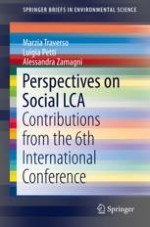
2020 | OriginalPaper | Chapter
1. Functional Unit Definition Criteria in Life Cycle Assessment and Social Life Cycle Assessment: A Discussion
Authors : Ioannis Arzoumanidis, Manuela D’Eusanio, Andrea Raggi, Luigia Petti
Published in: Perspectives on Social LCA
Publisher: Springer International Publishing
Activate our intelligent search to find suitable subject content or patents.
Select sections of text to find matching patents with Artificial Intelligence. powered by
Select sections of text to find additional relevant content using AI-assisted search. powered by